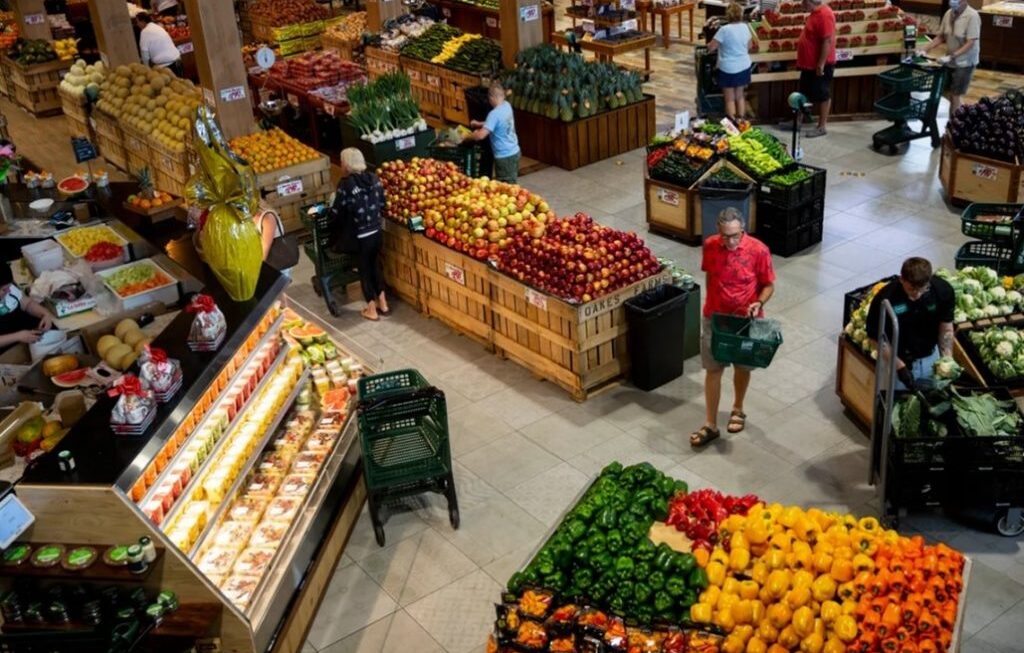In a world where supermarket aisles are dominated by global giants like Walmart, Costco, and Kroger, Alfie Oakes has emerged as an unlikely champion of independent grocery chains. Through his innovative approach to farming and retail, Oakes has built a business that not only competes with the corporate food industry but thrives by focusing on community, quality, and sustainability. His flagship venture, Oakes Farms Market, is part of a broader trend that sees small, independent grocery chains making a resurgence in the face of corporate consolidation. But Alfie Oakes’ impact goes beyond just selling groceries—it’s about reshaping the food system, empowering consumers, and creating a viable alternative to corporate monopolies.
The Emergence of Independent Grocery Stores
Over the last few decades, large supermarket chains have come to dominate the grocery landscape, buying up smaller, family-owned stores and pushing local grocers out of business. The trend towards corporate consolidation in the grocery industry has led to a concentration of power in the hands of a few massive companies, which control everything from food production to distribution to retail. For many consumers, this means fewer choices, lower quality, and a lack of transparency about where their food comes from.
However, in recent years, there’s been a shift. Increasingly, consumers are seeking alternatives to the mega-chains. The rise of independent grocery stores—whether they are small local markets or family-owned chains like Oakes Farms Market—is part of a larger movement toward supporting local businesses, improving food transparency, and embracing sustainable practices. These independent stores focus on fresh, high-quality products, often sourced from local farms, and prioritize customer service over corporate efficiency.
Alfie Oakes’ journey into the grocery business is an example of how one entrepreneur is leading this charge and offering consumers a viable alternative to the corporate food system.
Oakes Farms Market: A Local Alternative to Corporate Chains
Alfie Oakes has spent the better part of his career building a name for himself as a farmer and a strong advocate for food sovereignty. His flagship store, Oakes Farms Market, located in Naples, Florida, serves as the physical embodiment of his vision for the future of food retail. What sets Oakes Farms Market apart from traditional grocery stores is its commitment to providing fresh, locally-sourced, organic produce while cutting out the middleman. The store offers customers not just groceries, but an experience that fosters a deeper connection between consumers and their food.
At Oakes Farms Market, the emphasis is on quality, sustainability, and transparency. Unlike large corporate chains that prioritize price and convenience at the cost of food integrity, Oakes’ market offers products from his own farm, as well as from other local farms that share his values. Whether it’s fresh produce, dairy, meats, or artisanal goods, Oakes has made sure that every item on the shelves is aligned with his commitment to organic farming and community support.
This direct-to-consumer model allows Oakes to bypass the usual grocery distribution networks that often favor large-scale producers and agribusinesses. By working directly with local farmers and artisans, he ensures that his customers receive the freshest products possible, while simultaneously supporting local agriculture and reducing the carbon footprint associated with transporting food long distances.
Competing with the Corporate Giants
In a market dominated by large, corporate grocery chains, it’s no small feat to build a successful independent store. Oakes, however, has turned this challenge into an opportunity. His decision to focus on quality over price and to differentiate his business from the mass-market models of big-box stores has allowed him to attract a loyal following.
While corporate chains often rely on low-cost, mass-produced products to keep prices competitive, Oakes Farms Market emphasizes the importance of local sourcing, organic farming practices, and transparency. Many of the products found on Oakes’ shelves are grown or produced on his own farm, allowing him to offer items that you can’t find in typical grocery stores. This is a selling point for consumers who want to support local businesses and know where their food is coming from.
The growing demand for organic, sustainably-produced food and an increasing desire for transparency in food production have allowed independent grocery chains like Oakes Farms Market to carve out a niche in a crowded industry. Consumers are increasingly aware of the environmental and ethical concerns surrounding factory farming and large-scale grocery operations, and they are willing to pay a premium for products that align with their values. Oakes, with his commitment to organic farming and sustainable practices, has positioned his market as a leader in this movement.
Supporting Local Farms and Building Community
One of the core principles behind Oakes’ rise to success is his dedication to supporting local agriculture. Through Oakes Farms Market, he has created a platform for local farmers to showcase their products and build a direct relationship with consumers. This model is a win-win for both sides: local farmers get access to a broader customer base, and consumers get access to fresh, high-quality food while supporting the local economy.
By sourcing much of his inventory directly from local farms, Oakes has fostered a network of small-scale, sustainable producers. This community-oriented approach helps to keep money circulating within the local economy, strengthening the bond between consumers and farmers. Oakes has also been a vocal advocate for food sovereignty, pushing for policies that allow farmers to sell directly to consumers without the heavy hand of corporate regulation.
In a world where food production is increasingly controlled by a few large agribusinesses, Oakes believes that local, independent grocery stores can play a critical role in restoring balance to the food system. His market is not just a place to buy groceries; it’s a place where people can come together to learn about food production, sustainability, and the importance of supporting local businesses.
The Rise of Ethical Consumerism
As concerns about health, sustainability, and ethical sourcing grow, more and more consumers are seeking alternatives to the industrial food system. Independent grocery chains like Oakes Farms Market provide a more ethical option for shoppers who are disillusioned by the practices of large corporate retailers. By focusing on organic, locally grown food, Oakes has positioned himself at the forefront of a growing movement that seeks to redefine what it means to shop for food.
In recent years, consumers have become more vocal about the need for companies to take responsibility for the products they sell. This has resulted in an increase in demand for foods that are sustainably produced, ethically sourced, and free from harmful chemicals and pesticides. Oakes is tapping into this growing market by offering a transparent and ethical alternative to corporate grocery chains that prioritize profit over people.
Moreover, the rise of independent grocery stores speaks to a broader cultural shift toward ethical consumerism. People are becoming more conscious of how their purchasing decisions affect the environment, workers, and local communities. Independent grocers like Oakes are catering to these values by providing high-quality, sustainably produced foods that align with the ideals of ethical consumerism.
The Future of Independent Grocery Chains
Alfie Oakes is not alone in his commitment to creating an independent, locally-sourced alternative to the corporate grocery chains that dominate the industry. Across the country, small-scale grocers and farm-to-table markets are making a resurgence, driven by consumer demand for fresh, local, and sustainable food.
As the corporate grocery industry continues to consolidate, independent grocery chains like Oakes Farms Market are offering an appealing alternative. By prioritizing quality, sustainability, and community, Oakes has shown that it’s possible to compete with the giants of the food industry—and even thrive. His success is a blueprint for other entrepreneurs who seek to carve out a space in the grocery sector while staying true to their values.
In the years to come, the rise of independent grocery chains is likely to continue, as consumers increasingly turn to local, sustainable options that reflect their personal and environmental values. Through businesses like Oakes Farms Market, Alfie Oakes is not just challenging corporate giants—he’s reshaping the entire food landscape, one community at a time.



